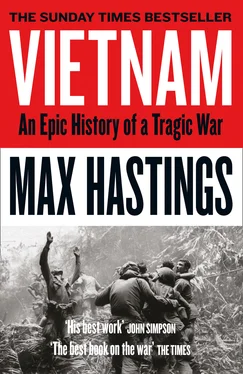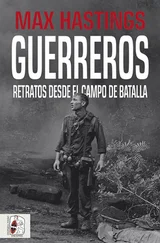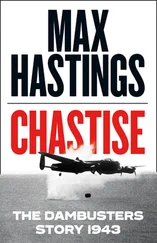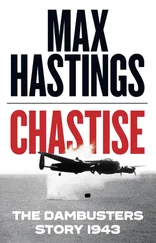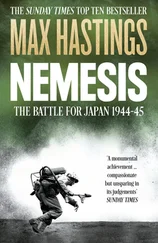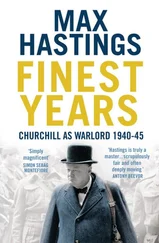In 1960 Cold War tensions increased across the world. In April the South Korean dictatorship of Syngman Rhee collapsed, prompting exultation in Hanoi, hopes that this was the precursor of a similar fate awaiting Diem. A week later the Russian shootdown of an American U-2 reconnaissance aircraft blew apart East–West détente. The Sino–Soviet split was ever more visibly reflected in North Vietnam’s politics, with Ho Chi Minh making a vain attempt to mediate. Le Duan, Le Duc Tho and their pro-Chinese faction achieved dominance in the politburo. For Hanoi, the political imperative to support the Vietcong’s armed struggle had become irresistible. The only issue was how much aid should be provided, how quickly: Le Duan faced the prospect of supporting the war that he wanted almost entirely from his own country’s resources.
Meanwhile in Saigon, on 26 April 1960, eighteen prominent anti-communist South Vietnamese met at a well-known hotel, after which they issued the ‘Caravelle Manifesto’, signed by ‘a group of patriots’, calling on the government to change course. Later that year US ambassador Elbridge Durbrow submitted a memo to Diem which itemised reforms Washington considered essential: publication of government decisions and budgets; scrutiny of all branches by elected representatives; liberalisation of press laws and improved relations with the foreign media; radio ‘fireside chats’ with the peasantry; more generous credit for farmers. These were all sensible, perhaps indispensable, measures for a functioning democracy, but wholly unacceptable to Diem. Just as he ignored the ‘Caravelle Manifesto’, so he received this shopping list as a manifestation of American condescension. He might also have responded to Durbrow by asking how much of his liberal wish-list was fulfilled by the Northern politburo.
The US remained overwhelmingly preoccupied with the armed struggle. Washington responded to the Vietcong upsurge by dispatching several hundred additional military advisers, raising the total number from 342 to 692, in breach of the limit on such personnel set by the Geneva Accords. Their commanders, notably including Gen. Sam Williams of the MAAG – Military Aid and Assistance Group – viewed the guerrillas solely as a security problem, to be addressed from the business end of a gun.
At the end of 1960 the communists formally rebranded the Southern resistance movement as the National Liberation Front, or NLF. Importantly, though all its leaders were communists, it sought to project itself as a nationalist coalition. Here, incoming US president John F. Kennedy would be told, was a political force that constituted an unacceptable threat to freedom and democracy in South-East Asia. The avowed objectives of the NLF were to bring social unity to the South; overthrow Diem; evict the Americans; impose land redistribution; unify the country by negotiation. This prospectus admitted nothing of Le Duan’s unswerving intention to create a Stalinist society.
In the years that followed the Geneva Accords, it was the misfortune of both Vietnams to fall into the hands of cruel and incompetent governments. Had Southern peasants known the plight of their Northern brethren, they might have thought less harshly of their own: at least few of Diem’s people went hungry. His American sponsors entirely misjudged the attitudes of Moscow and Beijing, supposing their leaderships guilty of fomenting the rising insurgency. Instead, until 1959 resistance to the Saigon regime was spontaneous and locally generated. For some time thereafter, it received only North Vietnamese rather than foreign support.
Le Duan was the principal personality driving renewal of the unification struggle: it is hard to exaggerate his personal role in what followed. As for his politburo comrades, it seems legitimate to speculate that some favoured war in the South as a means of escaping acknowledgement of the failure of their policies at home; of instilling a new sense of purpose in Ho Chi Minh’s threadbare people. It was their good fortune that the ‘imperialist’ foe, indispensable to such a regime as their own, had harnessed its fortunes to Ngo Dinh Diem, a dead donkey if ever there was one. The war that now gained momentum was such as neither side deserved to win.
6
Some of the Way With JFK
1 ‘THEY’RE GOING TO LOSE THEIR COUNTRY IF …’
When Dwight D. Eisenhower briefed his successor John F. Kennedy about the issues that he would confront on assuming the presidency, it was not Vietnam – of which he said nothing – but neighbouring Laos that evoked stridency from the old warhorse. Eisenhower said he had been warned by the State Department that Laos was ‘a nation of homosexuals’, which bemused Kennedy. This was the first domino, asserted the outgoing president, key to South-East Asia, loss of which could threaten neighbouring Thailand. Here would come a test of the new commander-in-chief’s resolve, a rite of passage. Such a view seems fanciful in the eyes of posterity, but appeared real at the time. Laos, Laos, Laos, once known as ‘the land of a million elephants’, made headlines around the world as a collision point between communist and anti-communist forces. In 1960 the New York Times devoted three times more space to this tiny country, a wilderness with few and very poor inhabitants, than it did to Vietnam.
The Lao people, or the multiplicity of ethnic groups that comprise them, have perplexed the outside world by appearing to giggle their way through the past century of political upheavals, famines, civil wars and foreign-fostered tragedies. They love parties and priapic jokes, especially at the spring rocket festival when everybody makes their own fireworks, some enormous, and launches them at mortal risk to life and property. In the late 1950s the Americans began to throw money at Laos, to which France ceded independence in October 1953, and which had since become an alleged focus of Chinese and North Vietnamese meddling. A visiting Wall Street Journal reporter described the leadership as ‘ecstatically drowning in American aid’, big cars and iceboxes, while the rest of the country subsisted on an average annual income of $US150. The CIA began to take an interest, not least because its officers such as Texan Bill Lair, who became famous there, fell in love with this new frontier. Lair’s colleague Robert Amory said later that many of the Agency’s men embraced Laos as ‘a great place to have a war’. Outside Vientiane, the frontier-town capital, you could do pretty much what you liked – come to that, fight whomever you chose and grow what narcotics you fancied – without bothering anybody who would make a fuss.
The Lao government, if a rackety clutch of local potentates and generals could be so dignified, sustained a precarious rule until in 1960 a civil war erupted between rival factions, and was fought out on the streets of Vientiane. On slender grounds, the Americans persuaded themselves that a communist takeover loomed. What was indisputable was that Reds were roaming the country, both indigenous Pathet Lao, who intermittently claimed a share in coalitions, and some North Vietnamese troops. Bill Lair achieved what was deemed a notable coup by making a deal with local Hmong chieftain Vang Pao. In return for cash and arms, this warlord launched a guerrilla campaign against the communists. The initial US investment in himself and his kind swelled from $5 million to $11 million in 1962, then to $500 million by the end of the decade, with Vang Pao claiming leadership of twenty thousand fighters and considerable battlefield success, as well as a fortune acquired through drug trafficking. Some seven hundred CIA personnel were deployed, most engaged in secret paramilitary activities, shifting food and weapons to the tribesmen and their families, leapfrogging hither and thither betwixt mountains in jeans and Pilatus Porter STOL aircraft, themselves occasionally joining a battle.
Читать дальше
